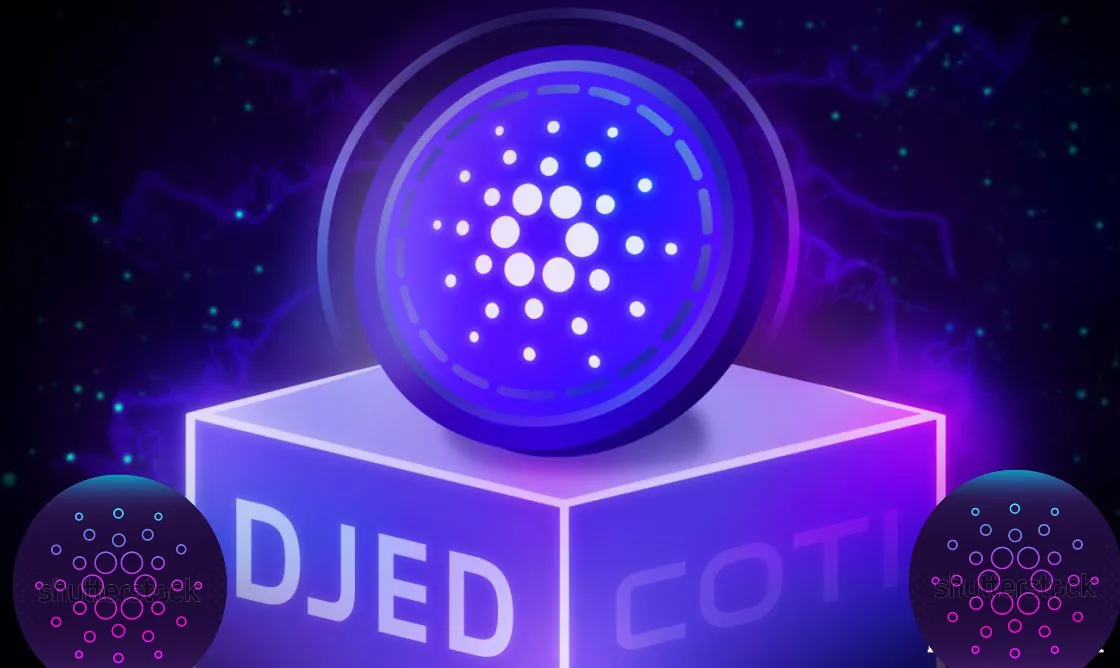Announcement from the development team
Djed, Cardano's algorithmic stablecoin, developed in partnership of Input Output Global, the Cardano blockchain developer, and Coti Network, is currently in the final stages of completion. Earlier, the Djed development team stated that they were waiting for the Vasil upgrade as the hard fork will allow for the scalability needed to be able to securely deploy this stablecoin to the mainnet.

With the Vasil Hard Fork being successfully deployed on the mainnet on September 22, greatly increasing the performance and capacity of this blockchain, Djed is very close to being deployed to the mainnet. According to Coti, there is only one thing left to wait for the final audit results, to see if any significant issues are discovered. If there are no problems, the project will go ahead and deploy Djed on the mainnet. However, there is still no announcement about the specific time for the rollout.
Djed's Mechanism
Djed is an algorithmically verifie and over-collateralized stablecoin in crypto.
Djed uses SHEN as a Reserved coin - a reserve coin that maintains the stablecoin's peg. When users trade or swap SHEN, they help provide the liquidity needed to maintain the peg rate for Djed. In return, SHEN Holder will receive a portion of transaction fees/mining fees/burning fees generated by Djed.
That is, if the Djed is over-peg (Djed Value is greater than $1), then the protocol will use Djed to buy SHEN. This resulted in a decrease in the supply of Djed and caused the price to return to its original $1 level. And vice versa, if the Djed is under-peg (Value < $1), the protocol will use SHEN to buy Djed.

The mechanism above is very similar to Terra's LUNA and UST, but Djed is a lot more over-collateralized. With Djed's collateral reserve ratio set by the protocol at a range of 400% to 800%. That means at least $4 in reserve assets to mint 1 Djed. So what happens if the rate drops below 400% or rises above 800%?

To mint Djed or Shen, users will need to provide ADA as collateral. The exchange between ADA, Djed & SHEN will be controlled by a smart contract. User will provide ADA to smart contract to receive Djed. Similarly, Djed can be burned to get ADA back. In the event that there is not enough ADA in the smart contract to pay all Djed burners, SHEN will be minted and sold to ADA to provide stability. When the ADA reserve ratio is below the required level, SHEN holders will not burn SHEN in exchange for ADA. Djed holders will be given priority in this case

When Reserve ratio less than 400%: In this case, the smart contract will not allow minting any new Djed. In addition, SHEN holders will not be able to burn their SHEN at any time while the reserve ratio is below 400%. And only 2 things are allowed:
- Djed holders can burn their Djed and exchange them for ADA, which increases the reserve ratio.
- SHEN investors can mint more SHEN to increase the reserve ratio.
When Reserve Rate Over 800% : In this case, the smart contract will prohibit the user from minting any new SHEN. Allows burning of SHEN and will reduce the reserve ratio.
It is the close connection between ADA - Djed - SHEN and the extremely large reserve ratio that has created the strong sustainability of Djed.
Summary

Currently Djed has over 35 integrated validation partners across the Cardana ecosystem and is still growing. With the emergence of stablecoins like Djed, Cardano's overall DeFi ecosystem will be further promoted. However, it is still important to keep an eye on the poor capital efficiency of over-collateralized stablecoins. At the same time, the shadow of Terra-UST's demise is still there, and both Vietnamese and international investors are still averse to the name algorithmic stablecoin. And will Cardano - Djed follow that same path?

